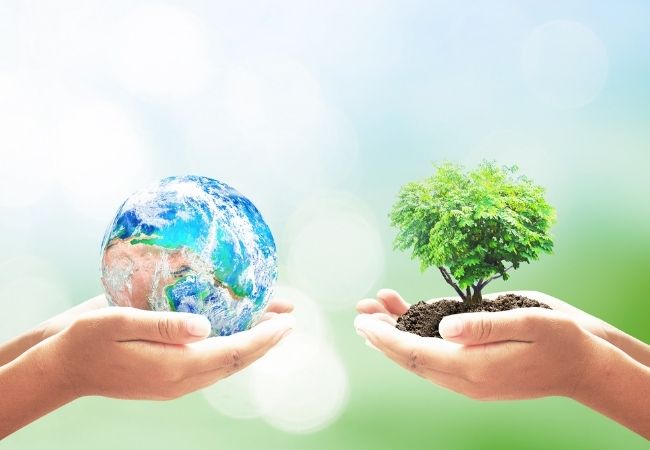


17 June, World Day to Combat Desertification and Droughtis not just a date on the UN calendar: for us at DKR, active since 1994 in the design of water dispensers for offices, schools, HoReCa reality e Water Housesthe anniversary demonstrates how everyday decisions can have a real impact on major global challenges.
The theme 2025, "United for Land. Our Legacy. Our Future'.highlights a simple truth: without sustainable use of water there is no fertile soil or prosperous future. Each system connected to the water mains reduces waste, eliminates disposable bottles and lowers CO₂ emissions, turning a seemingly trivial gesture - drinking - into a concrete act of environmental protection.
La desertification is the irreversible degradation of soil in arid and semi-arid areas due to erratic precipitation, rising temperatures, overexploitation of groundwater and unsustainable agricultural practices. It already affects 40 % of dry land (UNCCD, 2024). When moisture drops, soil loses organic matter, becomes compacted, can no longer absorb rainwater, and becomes vulnerable to erosion and pulverisation. The result is a vicious cycle that generates food insecurity, resource conflicts and environmental migration.
The World Day to Combat Desertification reminds us that The 95 % of the world's food depends on soilbut a living soil is also a 'diffuse reservoir': a single percentage point of extra organic matter can retain considerable volumes of water (FAO, 2023). Regenerating the land means strengthening the natural capacity to store water, mitigating flash floods, prolonged droughts and, ultimately, the resulting social and health costs.
The water footprint of our consumption is as follows:
If we do not reduce waste, global demand will exceed supply by about 40 % by 2030 (UN-Water, 2021). Optimising the final supply - with public fountains and grid-connected distributors - is therefore a decisive lever that complements agricultural and industrial interventions.
More than one billion under-25s live in vulnerable rural regions (UN DESA, 2024). Techniques such as precision irrigation, rain harvesting and wastewater reuse reduce water consumption by up to 60 % and create new business opportunities (UNCCD Global Mechanism, 2023). When water is managed with foresight, it generates employment, keeps young people in the territories and strengthens the resilience of communities.
"Land Degradation Neutrality is another term linked to the World Day against Desertification, and it means achieving a zero balance between land lost and land restored. Water is the precondition for this:
These integrated actions make the soil capable again of absorbing and returning water, closing the cycle that keeps it alive.
According to the UNCCD about a billion dollars a day between now and 2030 to restore soils and strengthen water resilience (UNCCD, 2023). A goal only possible with alliances between institutions, businesses and citizens, innovative financial instruments and a regulatory framework that rewards those who invest in regeneration and sustainable water management.
La 'blue circular economy'the circular economy linked to this primary element, aims at saving water by following the principles of the circular economy. This approach includes several practices: recovering heat from chillers to use it again, reusing water used in industrial processes, designing packaging that can be used several times, and powering plants with renewable energy such as solar or wind. These combined actions make it possible to significantly reduce water and energy consumption, while at the same time lowering greenhouse gas emissions.
Individual choices, multiplied by millions, create collective impacts. In addition to avoiding food waste, favouring local, seasonal foods, moderating beef consumption, choosing textiles with a low water footprint and installing flow reducers in taps, we can affect the way we drink.
Adopting mains-connected dispensers - at home, in the office or at school - eliminates the need for disposable bottles, reduces waste, cuts transport emissions and minimises the 'hidden' water used to produce plastic and move it. The Water Houses extend these benefits to the urban scale: they offer quality water for pennies, educate on sustainability and enable municipalities to reduce waste management costs. Filling a water bottle thus becomes the first tile in a virtuous domino linking our routine to soil health and the global climate.
Since 1996 we have been transforming public fountains into modern Water Houses that deliver natural and sparkling water. In cooperation with administrations and aqueducts:
Each facility is tele-controlled, subject to HACCP protocol and verified by the ASL: efficiency, safety and transparency form the basis of the service.
Combating Desertification and Drought Day on 17 June is a reminder that sustainable water management is the key to combating desertification and drought. Since 1994, DKR has been proving that innovating at the point of supply - with network distributors and Water Houses - reduces waste, strengthens local economies and stimulates a culture of respect for the land. To learn more about our solutions or propose collaborations you can contact us: we will be happy to share experiences and projects.